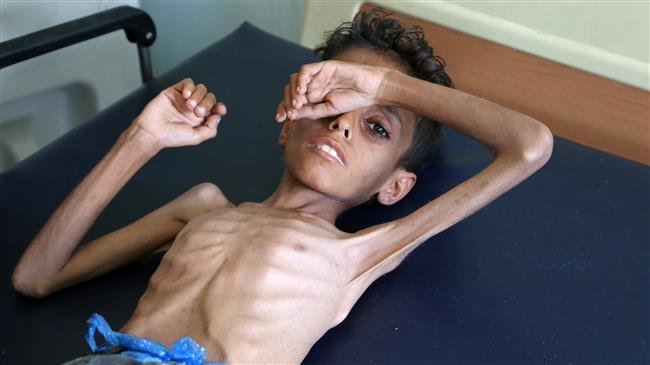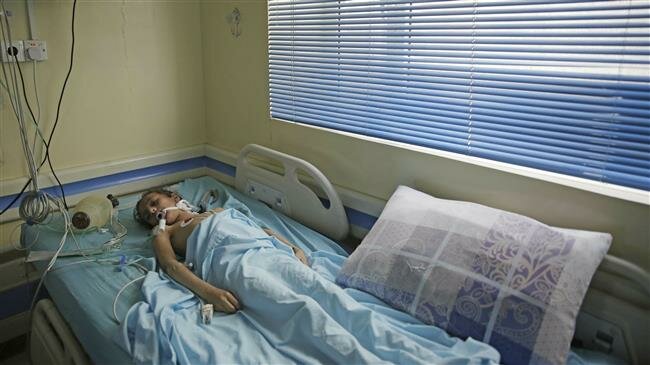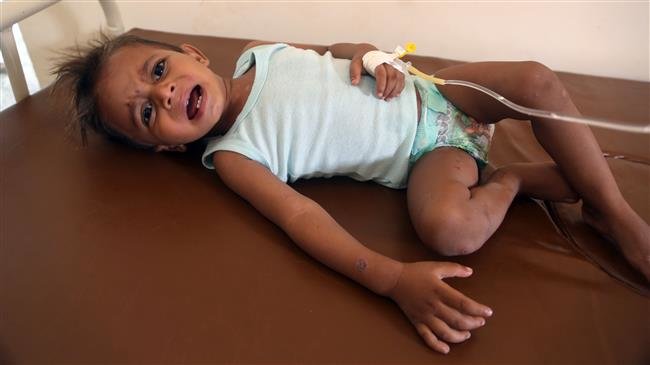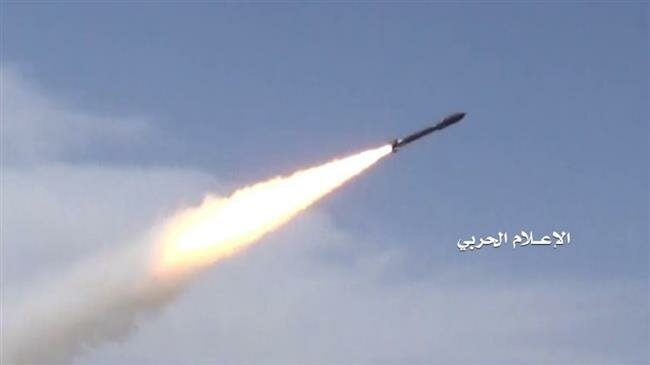The United Nations says the humanitarian crisis in Yemen, already the worst in the world, will deteriorate in 2019, nearly four years after a military coalition led by Saudi Arabia invaded the impoverished country and began an intense campaign of airstrikes and ground attacks which are still ongoing.
Publish dateWednesday 5 December 2018 - 02:13
Story Code : 175310
AVA- “The country with the biggest problem in 2019 is going to be Yemen,” said Mark Lowcock, the head of the UN Office for the Coordination of Humanitarian Affairs (OCHA), in a press conference in the Swiss city of Geneva on Tuesday.
He went on to say that last year the world body was providing food assistance to three million Yemenis a month. The figure, however, rose to eight million per month this year and is expected to hit 12 million next year, Lowcock added.
Leading a coalition of its allies, including the United Arab Emirates and Sudan, Saudi Arabia invaded Yemen in March 2015 in an attempt to reinstall former President Abd Rabbuh Mansur Hadi, who had resigned amid popular discontent and fled to Riyadh.
The aggression initially consisted of a bombing campaign but was later coupled with a naval blockade and the deployment of ground forces to Yemen.
Since the onset of the imposed war, the Yemeni army, backed by fighters from the country’s popular Houthi Ansarullah movement, has been defending the impoverished nation against the brutal aggression. The coalition is also resolute to crush the movement as another goal in its war on Yemen, which is teetering on the edge of famine.
The war is estimated to have left 56,000 Yemenis dead. About 8.4 million Yemenis are now facing starvation. The number is likely to increase to 14 million.
More than three and a half years into the war, Saudi Arabia has achieved neither of its objectives. Riyadh had declared at the start of the invasion that the war would take no more than a couple of weeks.
The situation has worsened in Yemen in recent months due to a broad economic collapse following a full-scale offensive by UAE forces, backed by armed militia loyal to Hadi, launched against the Houthi-held port city of Hudaydah in June.
More than 70 percent of Yemen's imports pass through the docks of Hudaydah, which is currently under a tight siege imposed by the invaders.
The so-called liberation operation, however, failed to achieve its objective, which is overrunning the vital port and defeating Houthi fighters, backed by those from the Popular Committees.
Elsewhere in his comments, Lowcock said the UN was in an urgent need of $4 billion to help the suffering Yemenis in 2019. Overall, 24 million people in Yemen, roughly 75 percent of the whole population, would need humanitarian assistance next year, he added.
However, the OCHA head also stressed that the outlook of Yemen could improve if progress is made at UN-brokered peace negotiations that are to begin in Sweden this month.
Lowcock said that if the talks bear fruit, “It is possible that we could find by the second half of the year that the extreme edge could get taken off the suffering of those people who have no form of income.”
However, he added that diplomatic gains were difficult to predict. “The appeal we are making is based on our assessment of what the situation will actually be, rather than wishful thinking about what we would all like it to be.”
He went on to say that last year the world body was providing food assistance to three million Yemenis a month. The figure, however, rose to eight million per month this year and is expected to hit 12 million next year, Lowcock added.
Leading a coalition of its allies, including the United Arab Emirates and Sudan, Saudi Arabia invaded Yemen in March 2015 in an attempt to reinstall former President Abd Rabbuh Mansur Hadi, who had resigned amid popular discontent and fled to Riyadh.
The aggression initially consisted of a bombing campaign but was later coupled with a naval blockade and the deployment of ground forces to Yemen.
Since the onset of the imposed war, the Yemeni army, backed by fighters from the country’s popular Houthi Ansarullah movement, has been defending the impoverished nation against the brutal aggression. The coalition is also resolute to crush the movement as another goal in its war on Yemen, which is teetering on the edge of famine.
The war is estimated to have left 56,000 Yemenis dead. About 8.4 million Yemenis are now facing starvation. The number is likely to increase to 14 million.
More than three and a half years into the war, Saudi Arabia has achieved neither of its objectives. Riyadh had declared at the start of the invasion that the war would take no more than a couple of weeks.
The situation has worsened in Yemen in recent months due to a broad economic collapse following a full-scale offensive by UAE forces, backed by armed militia loyal to Hadi, launched against the Houthi-held port city of Hudaydah in June.
More than 70 percent of Yemen's imports pass through the docks of Hudaydah, which is currently under a tight siege imposed by the invaders.
The so-called liberation operation, however, failed to achieve its objective, which is overrunning the vital port and defeating Houthi fighters, backed by those from the Popular Committees.
Elsewhere in his comments, Lowcock said the UN was in an urgent need of $4 billion to help the suffering Yemenis in 2019. Overall, 24 million people in Yemen, roughly 75 percent of the whole population, would need humanitarian assistance next year, he added.
However, the OCHA head also stressed that the outlook of Yemen could improve if progress is made at UN-brokered peace negotiations that are to begin in Sweden this month.
Lowcock said that if the talks bear fruit, “It is possible that we could find by the second half of the year that the extreme edge could get taken off the suffering of those people who have no form of income.”
However, he added that diplomatic gains were difficult to predict. “The appeal we are making is based on our assessment of what the situation will actually be, rather than wishful thinking about what we would all like it to be.”
Source : خبرگزاری Afghn Voice Agency(AVA)
avapress.net/vdcgqn9qzak9uw4.5jra.html
Tags
Top hits












